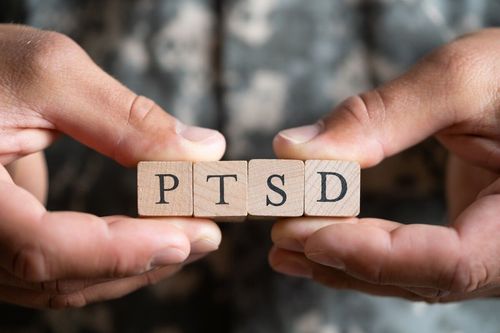Traumas are complex emotional injuries that can profoundly change our lives. They affect us in different ways and can cause a range of reactions in our energy field. What are the effects of trauma? What triggers anxiety and panic attacks? My name is Rico Brunner and in this article, I am explaining how fear arises from traumatic experiences, how you can free yourself from it, and what you should definitely avoid.
Where do anxiety and panic attacks come from?
The emotional effects of trauma are manifold and vary from person to person. They range extensively: from a feeling of numbness, in which you seemingly feel nothing, to overwhelming fears.
Traumatic fears arise when the trauma is still actively dominating our daily lives and triggering stress and overload in our energy field. Trauma blocks our scope of action and impairs our ability to process emotions and situations appropriately. This overload of our own self often leads to fears. If left unchecked, these fears can develop into panic attacks. The energy fields that are overwhelmed by trauma thus trigger a chain of emotional reactions that can restrict our lives. We have already dealt with the definition of trauma in another article.
How can I overcome my fear?
To find your way out of this overwhelming state, it is crucial to find places of safety. One such place could be your home, for example. These areas of safety serve as a starting point and provide you with the stability you need to overcome your fears step by step.
This is achieved through a gentle, non-overwhelming behavioral therapy. The first anchor could be to feel safe within your own four walls, and from there to start to confront the outside world in small, well-dosed steps. Even if it's just for a minute at first, each step outside further increases your sense of security and enables you to confront your fears bit by bit. Therefore, this process requires patience. The key is to keep returning to your safe place to reinforce your progress. In this way, you will steadily create more space in which you feel safe and strengthened again.
What to bear in mind: Don't put yourself under pressure
It would be a mistake to urge or force those affected to face their fears. Such an approach can not only intensify existing traumas, but also lead to re-traumatization. Based on experience, this rarely leads to success and in most cases tends to do more harm than good. Therefore, you shouldn’t put yourself under pressure.
Overcoming anxiety is a process that takes time. What is crucial is continuity – being persistent and patient, which will ultimately lead to success. It is about the gradual re-expansion of your own living space and regaining control over your own well-being.
Conclusion
Trauma can cause deeply rooted fears and panic attacks, significantly impacting your life. By building safe spaces and gently confronting your fears step by step with the help of gentle behavioral therapy, you can regain your inner strength and stability.






